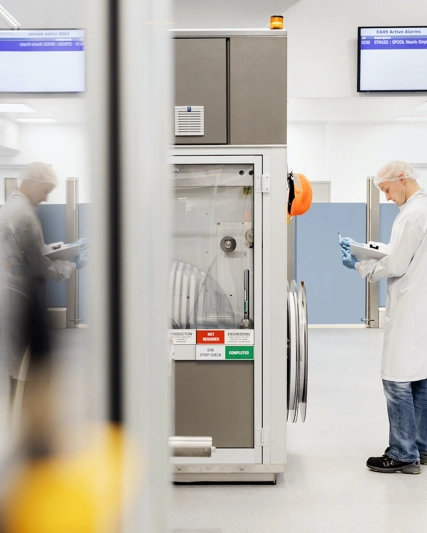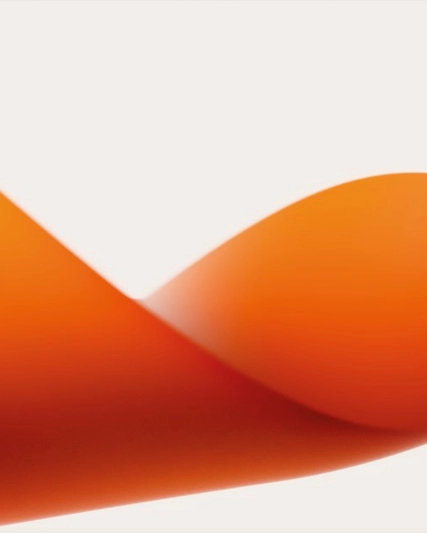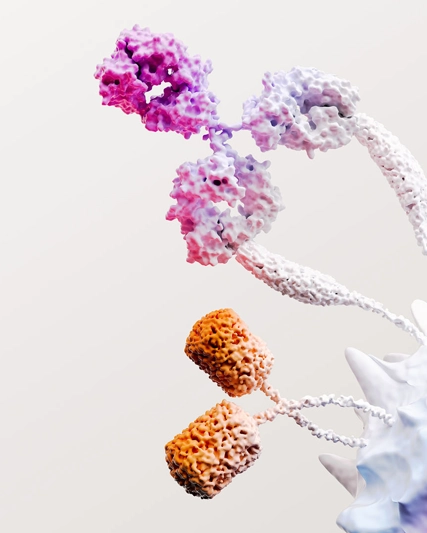Issued: London, UK
For media and investors only
GSK highlights new findings on Dementia and Alzheimer’s Disease at AAIC 2025, building on leadership in immunology and inflammation
- Real-world data shows an association between Recombinant Zoster Vaccine (RZV) and potential reduced risk of dementia, consistent with growing evidence1,2,3,4
- Posters on GSK5862611 and PROGRESS-AD focus on new therapeutic approaches to neurodegenerative diseases
GSK plc (LSE/NYSE: GSK) is presenting six abstracts at the Alzheimer’s Association International Conference (AAIC) in Toronto (27-31 July), detailing progress in our understanding of inflammation and immunology to tackle neurodegenerative diseases, a growing global health challenge projected to rise sharply over the next few decades5.
Tony Wood, Chief Scientific Officer said: “Building on our expertise in immunology and inflammation, we're using advanced technology to deepen our understanding of biological mechanisms and target the underlying drivers of neurodegenerative diseases. We're exploring innovative treatment approaches to develop breakthrough medicines for patients and we're investigating whether vaccines like RZV might play a role in reducing dementia risk. The data we are presenting at AAIC reflects our commitment to advance the science behind neurodegeneration.”
Headline findings on shingles vaccination and dementia risk
Three GSK-sponsored, real-world studies on shingles vaccination and dementia risk are being presented during a Developing Topics Session on pre-existing conditions. For more detail, incidence rates and adjusted hazard ratios are provided in the data tables (Table 2, 3, 4).
- In a study of adults aged 65 and older within an integrated healthcare system in Southern California (Epi-Z-103), 65,800 individuals vaccinated with 2 doses of RZV were matched 1:4 with 263,200 unvaccinated individuals on age, sex, race/ethnicity, and history of immunisation with Zoster Vaccine Live (ZVL). Data showed that individuals that received 2 doses of RZV had a statistically significant reduction of dementia risk (51% lower risk of dementia compared to unvaccinated individuals; 27% lower dementia risk compared to individuals who received a tetanus, diphtheria, and pertussis vaccine (Tdap)). See Table 2.
- In a study of U.S. Medicare beneficiaries aged 65 and older (Epi-Z-108), 502,845 individuals received 2 doses of RZV and were matched 2:1 with 1,005,690 unvaccinated individuals. Individuals vaccinated with two doses of RZV had a statistically significant reduction of dementia risk (33% lower risk of all- cause dementia compared to unvaccinated individuals who attended at least one preventive care visit). See Table 3.
- In a study of adults aged 65-74 in the UK Biobank cohort, 10,508 individuals with at least 1 dose of shingles vaccine (Zoster Vaccine Live) were matched 1:5 with 52,540 unvaccinated individuals on age, sex, and APOE-e4 Carrier status, an established genetic risk factor for Alzheimer’s disease. Results showed there was no statistical evidence of a difference in vaccine effect between individuals who carry the APOE-e4 haplotype and those that do not. Additionally, results show a statistically significant 32% lower risk for dementia among individuals receiving HZ-Vx compared to adults not vaccinated with HZ-Vx. See Table 4.
Observational research has limitations and cannot demonstrate a causal association between RZV vaccination and reduced dementia risk. GSK is pursuing additional studies to further understand the potential link between shingles vaccination and reduced dementia risk.
Advancing therapeutic approaches to neurodegenerative disease
GSK also presented three posters on neurodegenerative disease from its collaboration with Alector.
- Evaluation of GSK5862611, an anti-Sortilin tool antibody in hiPSC-derived complex cellular models harbouring TDP43 G298S risk variant in support of its potential development in TDP43 related neurodegenerative diseases: Using advanced lab models made from human stem cells carrying a genetic risk variant (TDP43 G298S), the study aimed to better understand how the GSK5862611 antibody works and gather evidence to support its development as a treatment for these challenging diseases.
- Blood-based biomarkers enrichment for amyloid positive participants reducing patient burden in PROGRESS-AD, a phase 2 clinical trial for early Alzheimer’s disease: provides insight into using blood tests to more easily detect specific biomarkers that indicate the presence of amyloid, a protein linked to Alzheimer’s.
- Understanding the patient voice for medicine development: Qualitative research of the patient journey in Alzheimer’s Disease across diverse populations: aimed at understanding the experiences of people living with Alzheimer’s disease to develop effective therapies.
Table 1: Full list of GSK’s presentations at AAIC
| Abstract title | Presenter | Presentation details |
|---|---|---|
| Epi-Z-103: Recombinant Zoster Vaccine Associated with a Reduced Risk of Dementia Onset among US Beneficiaries ≥65 Years of Age | Emily Rayens, Researcher | Oral presentation, abstract #108095 |
| Epi-Z-108: Recombinant Zoster Vaccine Associated with a Reduced Risk of Dementia Onset among US Beneficiaries ≥65 Years of Age | Hannah Alsdurf, GSK | Oral presentation, abstract #108646 |
| APOE-E4 carriage modifies the association between herpes zoster vaccination and varicella zoster virus reactivation on dementia risk | Jonathan Davitte, GSK | Virtual poster, abstract #104034 |
| Evaluation of GSK5862611, an anti-Sortilin antibody, in hiPSC-derived complex cellular models harbouring TDP43 G298S risk variant | Thomas Westergard, GSK | Poster, #96500 |
| Blood-based biomarkers enrich for amyloid positive participants reducing patient burden in a phase 2 clinical trial for Alzheimer's Disease | Rianne Esquivel, GSK | Poster #103351 |
| Understanding the patient voice for medicine development: Qualitative research of the patient journey in Alzheimer's Disease across diverse populations | Chiko Ncube, GSK | Virtual poster #100775 |
Risk reduction in shingles vaccination studies
Table 2: summary of risk reduction in Epi-Z-103 (abstract #108095)
| N = 65,800 individuals vaccinated with 2 doses of RZV matched 1:4 with 263,200 unvaccinated individuals | |||
|---|---|---|---|
| Outcome | Unadjusted Incidence Rate (Cases per 1000 person-years) | Unadjusted hazard ratio (95% Confidence Interval) | Adjusted hazard ratio (95% Confidence Interval) |
| Dementia | Vaccinated: 10.74 Unvaccinated: 23.04 |
0.45 (0.43-0.47) | 0.49 (0.46-0.51) |
| Alzheimer’s Disease | Vaccinated: 3.17 Unvaccinated: 5.74 |
0.49 (0.45-0.53) | 0.48 (0.44-0.53) |
| Vascular dementia | Vaccinated: 1.04 Unvaccinated: 2.33 |
0.41 (0.36-0.48) | 0.45 (0.39-0.53) |
Notes: Unadjusted estimates do not account for differences in characteristics between the vaccinated and unvaccinated groups. Adjusted estimates consider differences in characteristics to balance the groups on potential confounding factors.
Table 3: summary of risk reduction from Epi-Z-108 (abstract #108646)
| N = 502,845 individuals received 2 doses of RZV matched 2:1 with 1,005,690 unvaccinated individuals | |||
|---|---|---|---|
| Outcome | Unadjusted Incidence Rate (Cases per 1000 person-years) | Unadjusted hazard ratio (95% Confidence Interval) | Adjusted hazard ratio (95% Confidence Interval) |
| Dementia | Vaccinated: 10.45 Unvaccinated: 15.73 |
0.64 (0.63-0.66) | 0.67 (0.66-0.68) |
| Alzheimer’s Disease | Vaccinated: 2.97 Unvaccinated: 3.99 |
0.71 (0.69-0.73) | 0.73 (0.71-0.76) |
| Vascular dementia | Vaccinated: 1.48 Unvaccinated: 2.26 |
0.63 (0.60-0.66) | 0.67 (0.64-0.70) |
Notes: Unadjusted estimates do not account for differences in characteristics between the vaccinated and unvaccinated groups. Adjusted estimates consider differences in characteristics to balance the groups on potential confounding factors.
Table 4: summary of risk reduction from UK Biobank FinnGen (abstract #104034)
| N = 10,508 individuals with at least 1 dose of HZ-Vx matched 1:5 with 52,540 unvaccinated individuals | |||||
|---|---|---|---|---|---|
| Outcome | # with Outcome (% of Sample) | Hazard Ratio (95% Confidence Interval) | |||
| Overall | Stratified by APOE-e4 Haplotype | ||||
| APOE-e4 Carriers | Non-Carriers | p-interaction* | |||
| Dementia | Vaccinated: 253 (2.4%) Unvaccinated: 1781 (3.4%) |
0.68 (0.59-0.77) p-value<0.0001 |
0.75 (0.63-0.90) p-value<0.0001 |
0.59 (0.48-0.73) p-value<0.0001 |
0.083 |
| Alzheimer’s Disease | Vaccinated: 122 (1.2%) Unvaccinated: 845 (1.6%) |
0.69 (0.57,0.84) p-value<0.0001 |
0.73 (0.57,0.92) p-value<0.0001 |
0.64 (0.47,0.88) p-value<0.0001 |
0.533 |
| Vascular dementia | Vaccinated: 75 (0.7%) Unvaccinated: 454 (0.9%) |
0.78 (0.61,1.00) p-value=0.05 |
0.85 (0.60,1.19) p-value=0.34 |
0.72 (0.50,1.02) p-value=0.06 |
0.509 |
Notes: The primary objective for this study was to determine whether the association of HZ-Vx with dementia was different across the APOE-e4 haplotype strata and not to evaluate the overall effect of HZ-Vx on Dementia. The results presented in Table 3 are structured to reflect the primary objective of the study; with the p-interaction measure providing a significance estimate for differences in association of HZ-VX and dementia between the APOE-e4 haplotype strata.
About GSK
GSK is a global biopharma company with a purpose to unite science, technology, and talent to get ahead of disease together. Find out more at gsk.com.
About Shingrix (Recombinant Zoster Vaccine or RZV)
Shingrix (GSK’s Recombinant Zoster Vaccine or RZV) is a non-live, recombinant subunit vaccine indicated for the prevention of shingles in adults 50 and over. It combines an antigen, glycoprotein E, with an adjuvant system, AS01B, and may help overcome the natural age-related decline in responses to immunisation that contributes to the challenge of protecting adults aged 50 and over from shingles6,7. RZV is not indicated to prevent primary varicella infection (chickenpox). In several countries, RZV is also approved for adults aged 18 years or over at increased risk for shingles. The use of RZV should be in accordance with official recommendations and local product label. Shingrix is not approved by any regulatory authority for the prevention of dementia.
About GSK research in neurodegeneration
GSK’s research into neurodegenerative diseases builds on the company’s established expertise in immunology and inflammation. GSK is developing an innovative pipeline of potential medicines to address diseases, including Alzheimer’s disease.
Cautionary statement regarding forward-looking statements
GSK cautions investors that any forward-looking statements or projections made by GSK, including those made in this announcement, are subject to risks and uncertainties that may cause actual results to differ materially from those projected. Such factors include, but are not limited to, those described in the “Risk Factors” section in GSK’s Annual Report on Form 20-F for 2024, and GSK’s Q1 Results for 2025.
References:
- Schwab P, et al. Recombinant zoster vaccine and reduced risk of dementia: matched-cohort study using large-scale electronic health records and machine learning methodology. Abstract presented at Alzheimer's Association International Conference (AAIC); 28 July - 1 August 2024, Philadelphia, PA
- Taquet, M., Dercon, Q., Todd, J.A. et al. The recombinant shingles vaccine is associated with lower risk of dementia. Nat Med 30, 2777–2781 (2024). https://doi.org/10.1038/s41591-024-03201-5.
- Eyting, M., Xie, M., Michalik, F. et al. A natural experiment on the effect of herpes zoster vaccination on dementia. Nature 641, 438–446 (2025). https://www.nature.com/articles/s41586-025-08800-x
- Schnier C, Janbek J, Lathe R, Haas J. Reduced dementia incidence after varicella zoster vaccination in Wales 2013-2020. Alzheimers Dement (N Y). 2022 Apr 13;8(1):e12293. doi: 10.1002/trc2.12293. PMID: 35434253; PMCID: PMC9006884. https://pubmed.ncbi.nlm.nih.gov/35434253/
- Global status report on the public health response to dementia. Geneva: World Health Organization; 2021. Global status report on the public health response to dementia. Accessed June 2025
- Cunningham, AL, et al. Efficacy of the Herpes Zoster Subunit Vaccine in Adults 70 Years of Age or Older. New England Journal of Medicine. 2016;375(11):1019–32.
- The GSK proprietary AS01 adjuvant system contains QS-21 Stimulon® adjuvant licensed from Antigenics LLC, a wholly owned subsidiary of Agenus Inc. (NASDAQ: AGEN), MPL and liposomes.


